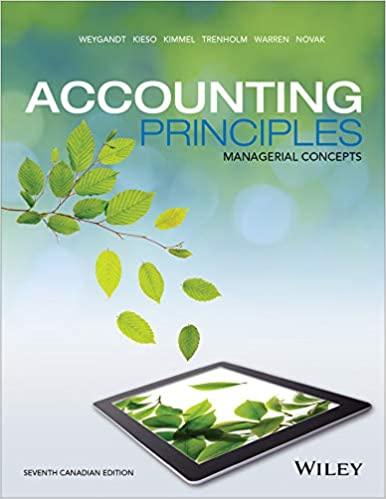Question
Need a response to this discussion. In your response to at least two peers, discuss actions and consequences that should be taken in response to
Need a response to this discussion.
In your response to at least two peers, discuss actions and consequences that should be taken in response to a violation of their selected principle. Use the following questions to help guide your responses:
- What actions or strategies could you or others take to remediate the ethical issues?
- What are some repercussions of not abiding by your peer's selected principle from a legal, business, or general professional perspective?
I would describe integrity as being honest, loyal, and never looking out for one's self. Always putting others first and never being selfish. Never putting others in the spotlight to gain self-importance. Never giving up someone's personal information to reach a higher podium. Having integrity for a business is very important. If I had a very high-end client, they would not want any of their information to leak out to the public, it could ruin them. So having integrity in keeping things hush hush would be very vital in a business.
Being a practitioner is a hard job especially if you have a client that could be a criminal. Think about this for a second. Suppose you have a job working for the wealthiest person in the world and you find something wrong with the books. Do you tell someone, or do you keep the integrity that you swore by in the AICPA code? You would want to do the right thing, but how would anyone handle this? "Integrity requires a member to be, among other things, honest and candid within the constraints of client confidentiality." In my situation I would go to that client and have a conversation with them about how to handle this, maybe they did not know about this situation with the books. See what they have to say and then handle it after getting all the facts. Taking the right course of action can be hard especially when a client could make you disappear. That is why you see people in hot water when it comes to fudging the books, they have to much integrity towards the company they work for, but I would do the same. Like my grandfather would say, no one likes a rat.
AICPA Code of Professional Conduct. (2016, August 31). Https://Learn.Snhu.Edu/Content/Enforced/738502-ACC-202-R5412-OL-TRAD-UG.21EW5/Course%20Documents/AICPA%20Code%20of%20Professional%20Conduct.Pdf?_&d2lSessionVal=qEStgt2MHoyF8aOlGBx8Qs7iW&ou=738502.https://learn.snhu.edu/content/enforced/738502-ACC-202-R5412-OL-TRAD
Step by Step Solution
There are 3 Steps involved in it
Step: 1

Get Instant Access to Expert-Tailored Solutions
See step-by-step solutions with expert insights and AI powered tools for academic success
Step: 2

Step: 3

Ace Your Homework with AI
Get the answers you need in no time with our AI-driven, step-by-step assistance
Get Started


